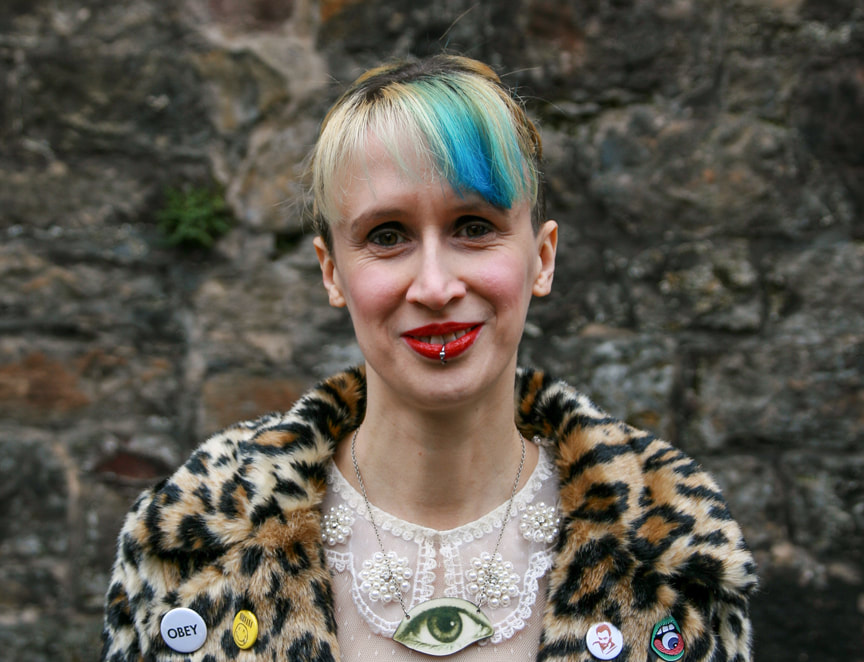|
Award-winning novelist, Ever Dundas, and Robin Spinks, Innovation and Technology Relationships Manager at the RNIB, discuss access for disabled people to technology in the current face of austerity.
Dundas opened with a powerful reading from of her freedom paper, What Is To Come, fittingly set against an atmospheric backdrop of drumming and eerie sounds, which raised the tension of the audience to the level of the topic in question. “Freedom is a world without capitalism”, she read, “I will not be your martyr, I will not die on this capitalist cross.” Her articulate and deliberate words, were delivered with the expert control of one well-used to fighting for their voice to be heard: in this instance, above the din of the current capitalist regime of a conservative government. Words which were received with tumultuous applause. Dundas shared her experience of the welfare system, having applied for both Employment Support Allowance (ESA) and Personal Independence Payment (PIP) due to her disability, fibromyalgia. Dundas feels the system is completely broken, serving only to punish and humiliate disabled claimants. “They were surveilling me through my entire assessment, to the point of noting on file that I was able to stand up from my chair, and lift half a cup of water from the table.” And deciding, ultimately, that she is not ‘disabled enough’. Spinks agreed that there is no room for nuance in the current welfare system. He highlighted that disability exists on a spectrum and that our government neglects to address that, only perpetuating and reinforcing stigma. “We should not be peppering our disability assessments with assumptions, but instead make it an assessment of disabilities but also aspirations.” Both agree that the narrative needs to change and that it must be more complex. The RNIB are running a campaign, #HowISee, which aims to address the misunderstanding of the general public on the nuance of sight-impairment, pointing out that technology is helping us to reform the narrative. “Tech is a great liberator, but understanding must be nestled alongside it – not bureaucratic questions.” Our current system puts people off at the first point of call, and access to work becomes the first blockade to those looking to get support in going back to work, says Spinks. Yet, technology has bridged the gap for many, when it comes to living with disabilities. He and Dundas shared their own moving accounts of times when technology has done so for them, demonstrating the power of tech to do good in our society. But even good tech must re-evaluate and consider the needs of its disabled consumers, by making adaptable devices. Accessibility is also a major issue, with many adaptable devices costing too much money for those who need it. Dundas emotively described how her world shrunk when she became ill, and how something as simple as an electric bicycle would expand it enormously. Sadly the cost is simply too prohibitive. Spinks believes that all tech developers should be legally bound to advance life for disabled people, and that the narrative would be changed by having a rolling programme of “embedded understanding” in these companies. Dundas firmly believes that raising awareness in the public sphere is the first step to changing the narrative, and for her, that’s writing about it. The last lines of her freedom paper – a calling for the disabled to unite against austerity – resonated the quiet but determined hope of the audience, at the end of this bolstering discussion (if not a debate.) “We hold our idealistic dreams in our hands like flames and we will raze capitalism to the ground. Out of the ashes: rejuvenation ripe with possibility, the freedom of a new beginning.”
0 Comments
Leave a Reply. |
My latest writings, and thoughts on disability, mental health and young-adult lit. Archives
September 2022
|

 RSS Feed
RSS Feed